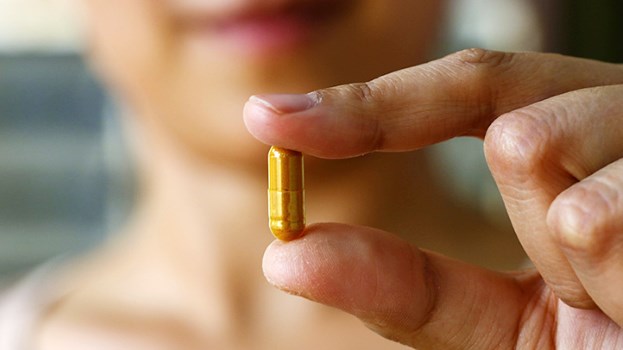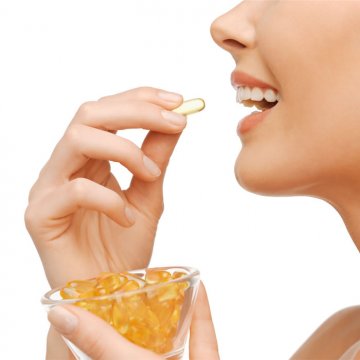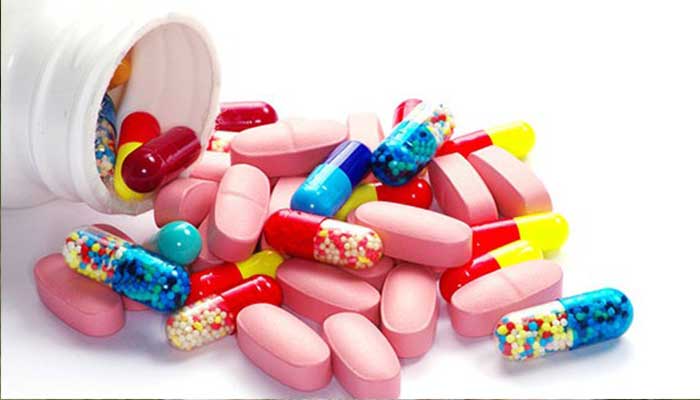Why, How & When to take Probiotics and with Antibiotics
Why take probiotics? How and When should you take probiotics? In the morning or evening, in an empty stomach or after eating? What is the best way and timing? How do antibiotics and probiotics relate? Is it recommended to take probiotics with antibiotics or should you take them before or after antibiotics? Read on to find out.
Why take Probiotics-Should I take Probiotics?
You should take probiotics. Probably, you are already taking them without even noticing. That is especially if you are fun of yogurt and fermented food. The benefits of taking probiotics are indeed many. This material mentions the most important and those backed up by studies.
- Prevention and treatment of Antibiotic-Induced Diarrhea – by replacing the normal intestinal flora, the integrity of the intestinal epithelium is maintained. Clostridium difficile is outcompeted and diarrhea prevented. Clostridium difficile occurs as a major agent in the cause of diarrhea among others such as the rotavirus that results in nosocomial diarrhea[i]. In the prophylactic treatment of diarrhea, strains of probiotics such as Saccharomyces boulardii, lactis, lactobacillus, Streptococcus thermophiles and Bifidobacterium breve are deployed
- Reduction of flares and itch in acne, dermatitis and rosacea – this occurs via the prevention of inflammation when the immune response of the body is suppressed. In the pathology of acne, the itch and flares occur as a result of attack by the immune system.
- Reduced risk of pre-eclampsia in expectant women– a study published in the American Journal of Epidemiology showed that out of more than 33,000 women in Norway, those who consumed fermented milk products during the first trimester and half of the second, had reduced risk of pre-eclampsia. This has been linked to its anti-inflammatory properties in the intestines that in turn prevent build-up of blood pressure. In addition, probiotics with Lactobacillus and Bifidobacterium taken during the first trimester until 6 months after birth reduced central obesity. This prevents the occurrence of pre-eclampsia in subsequent pregnancies.
- Reduction of colicky symptoms in babies and infants – this occurs as a result of proper digestion in the presence of probiotics which prevents gas and bloating
- Improving immune system function[ii] – probiotics decrease allergic responses in the gut via modulation of various signaling pathways. This is especially important for management of the symptoms of inflammatory bowel disease.
When to take Probiotics?
Now that you have chosen a good probiotic brand, here comes the dilemma. You are not really sure if it’s best to take them in the morning or night, on an empty stomach or with food. If you are on antibiotics, you will also want to know if it is right to take them before, with or after taking your antibiotics. These are the myriads of questions that are posed in many online and other platforms.
On an empty, with Food or After Meals ?
This question has generated conflicting responses among health professionals. Division is based on the labels on products and recommendation provided by literature.
Taking Probiotics on empty Stomach
Those who recommend that probiotics be taken on an empty stomach argue that acid production is stimulated during the cephalic phase of digestion that would lead to loss of probiotic bacteria. They add that taking the probiotics with water dilutes the acid and preserves the bacteria. However conflicting with this is the fact that during the fasting phase gastric pH is usually very low to the units of 0.8 – 2. This is a really corrosive environment for the existence of the bacteria.
Taking Probiotics with Food
Those who advocate for consumption of probiotics with food argue that food provided a protective buffered environment against stomach acid. This basis is supported by destruction of probiotics even the freeze-dried ones in pH of 1.5. It therefore provides that probiotics be consumed with meals.
Taking Probiotics after Meals
The last group of advocates suggest that probiotics be taken after meals. They argue that after meals, the pH of the stomach is higher compared to other alternatives and in the range of 4 – 5. In addition, food ingested may also boost the colonies in probiotics especially fermentable substrates. Therefore, probiotics are further nourished. Tracing the roots of probiotics before physiology of the gut was indefinite, fermented milk and kefir were consumed with meals and elicited desirable results. Research from microbiologists shows that at mealtimes (and especially breakfast time) the stomach’s gastric acidity is naturally at pH 4 or above.
It is therefore evident that taking probiotics with food bears the most weight and would be highly preferred. Caution should however be taken on the nature of the food taken. Such a consideration emphasizes on consuming warm food with probiotics as opposed to hot foods. Some bacteria are thermo labile. This means that they are not able to survive hot temperatures. It would also be nearly similar to take probiotics just before your meal. About 30 minutes is safe.
Studies have led to the identification of strains that can survive the harsh acidic condition of the stomach. Such strains include the Lactobacillus acidophilus Rosell-5. It has been well studied and findings are that acid and bile salts are not a match. They should therefore reach the intestines.
The other strain is Lactobacillus rhamnosus Rosell-11 which has been proven to resist corrosion by acid of as high as pH 3 and bile. Both of these strains are present in the probiotic OptiBac. In vitro trials of OptiBac show that more than 95% of the bacteria survive gastric acids at pH of 4 and above.
Morning or evening?
Most drugs have to be administered at specific times due to their side effects such as one that may cause drowsiness may be preferably administered at night. Same applies to probiotics. Some of the probiotic products in the market with Bifidobacteria and fiber may result in gas and bloating. Taking this kind of probiotic at night would be better than during the day. Most probiotic manufacturers recommend taking the probiotics with or 30 minutes before breakfast.
How to take Probiotics-Best Way to take Probiotic Pills & Supplements
Now that you are well conversant with the timings, how well should you take your probiotics? What is the best way?
In study published in the December 2001 edition of the journal “Beneficial Microbes”, findings were that fat in the diet improved survival of probiotic bacteria. It was also reported that 1% milk was more effective than taking water or juice with probiotics. 1% milk is 1 mL of pure milk in 100 mL of water. This means that how you take your probiotic will highly determine its effectiveness. Here are the two important points:
- With food, take the recommended amount 30 minutes before breakfast or with the meal.
- With antibiotics, take the probiotic 1-2 hours after taking your antibiotic
It is also important to take probiotics well not only to get the most out of it, but also prevent occurrence of side effects. You would tackle both of them at a go, but the latter should equally be emphasized. FDA regulates probiotics not as medications, but as food. You understand that foods are not regulated and it therefore downs on you to make the correct decisions with them. The lack of regulation gives the manufacturers the leeway to assume essential labelling such as safety and effectiveness as medications. Check for the following:
- Genus and species in the probiotic. Some strains of bacteria such as Enterococcus faecalis and Enterococcus faecium are in fact ‘bad’ bacteria and have mutated to be resistant to the current conventional antibiotic medications we have in the Pharmacies. Interestingly, they have been banned from being used as probiotics in some countries including Australia.[iii]
- The CFU count by the use-by-date
- Repeatedly check the dose. Do not over-consume
- Visit the manufacturer’s website to learn more about their product. Check for any claims on the product by the manufacturer and whatever the label says. Check the review too section so as to learn from the experienced.
The above are important steps to using any probiotics for both safety and effectiveness.
Taking Probiotics after Antibiotics or Probiotics with/and Antibiotics?
Probiotics and antibiotics
Antibiotics, also referred to as antibacterials, are a type of antimicrobial drug or medication used to treat and prevent bacterial infection. They work by either killing or inhibiting the growth of bacteria. As Tamara D. F, a NYC-based registered dietitian, puts it, antibiotics not only destroy the bad bacteria but they also cause collateral damage to the beneficial bacteria that inhabit your gut.
According to a study published in the Journal of the American Medical Association reviewing clinical trials that involved probiotics and antibiotics, it was found that probiotic supplementation can bring in a 42-percent reduction in diarrhea associated with antibiotic use.
Up to one-third of antibiotic users may experience antibiotic-associated diarrhea of impaired bacterial functioning.
In some cases, eradication of too many good bacteria or probiotics can enable a disease-causing strain of bacteria, called Clostridium difficile (“C. diff”) to gain a foothold in the intestines and cause a severe diarrheal infection.
A number of experts that even in incidents where antibiotics do not cause noticeable GI symptoms, the ecological changes they precipitate in the gut can have adverse effects on longer-term health.
Probiotics before, with or after antibiotics?
As mentioned above antibiotics do not have a clear-cut line between beneficial and pathogenic bacteria. They kill without discrimination and would therefore be important to know how to take probiotics with antibiotics.
This is applies to those who are on amoxicillin, tetracycline, doxycycline and penicillin and those who have finished their antibiotic course.
So, when is taking probiotics with antibiotics recommended? How long should wait before or after antibiotics?
Pharmacists and physicians normally recommend probiotics with antibiotics to regulate the intestinal normal flora. This strategy also prevents diarrhea induced by drugs as a result of predomination by Clostridium officinale. Here are some guidelines on how to go about it.
- It is recommended that you take your antibiotics then wait for 1 to 2 hours after which you can have your probiotics. It is more preferable to ask your pharmacists based on the manufacturer, when it is best to take that particular brand. 1 to 2 hours is averagely safe for most probiotics in the market as during this time, antibiotics will have passed through the body.
- There are strains in probiotics that should not be taken with antifungals and one of them is Saccharomyces boulardii. It is however, stable in acidic environments and can thence be taken at any time. At the same time, owing to the fact it a yeast and not bacteria, the live micro-organisms will not be killed.
- Probiotics that have been well configured with strains and formulation forms that can survive antibiotics state that on their products. One such probiotic is EndoMune developed by Dr. Hoberman, a
What is the best brand of probiotics to take with antibiotics?
Choosing what good bacteria to take with antibiotics takes into account a lot of factors.
First you need to determine why you are taking a probiotic supplement or food. Not all probiotics are equally suited for the same problem.
Thereafter, select the specific strain(s) of probiotics that have shown the most efficacy in well-designed research studies.
As mentioned above supplements with Saccharomyces boulardii iyo as an ingredient should be one of your best choices. One popular example of such supplements is Florastor.
Yeast Infection
For women suffering from yeast infection, some experts recommend taking live cultures from probiotic foods such as yogurt or taking probiotic supplements containing Lactobacillus acidophilus when taking antibiotics to try to prevent it. However, more research is needed.
References & Sources
- [i] Guandalini S. Probiotics for children with diarrhea: An update. J Clin Gastroenterol 2008; 42 (Suppl 2):S53-S57. A complete and useful review that focuses on the efficacy of probiotics for diarrhea of different etiologies in children in different settings.
- [ii] Lemberg DA, Ooi CY, Day AS. Probiotics in pediatric gastrointestinal diseases. J Pediatric Child Health 2007; 43:331-336.
- [iii] Australian Government Department of Health Therapeutic Goods Administration.Item 3.2.2 Probiotic organisms Recommendation 6. [Online] Complementary Medicines Evaluation Committee, October 29, 1998. [Cited: July 10, 2014.] http://www.tga.gov.au/archive/committees-cmec-resolutions-09.htm#i322.


